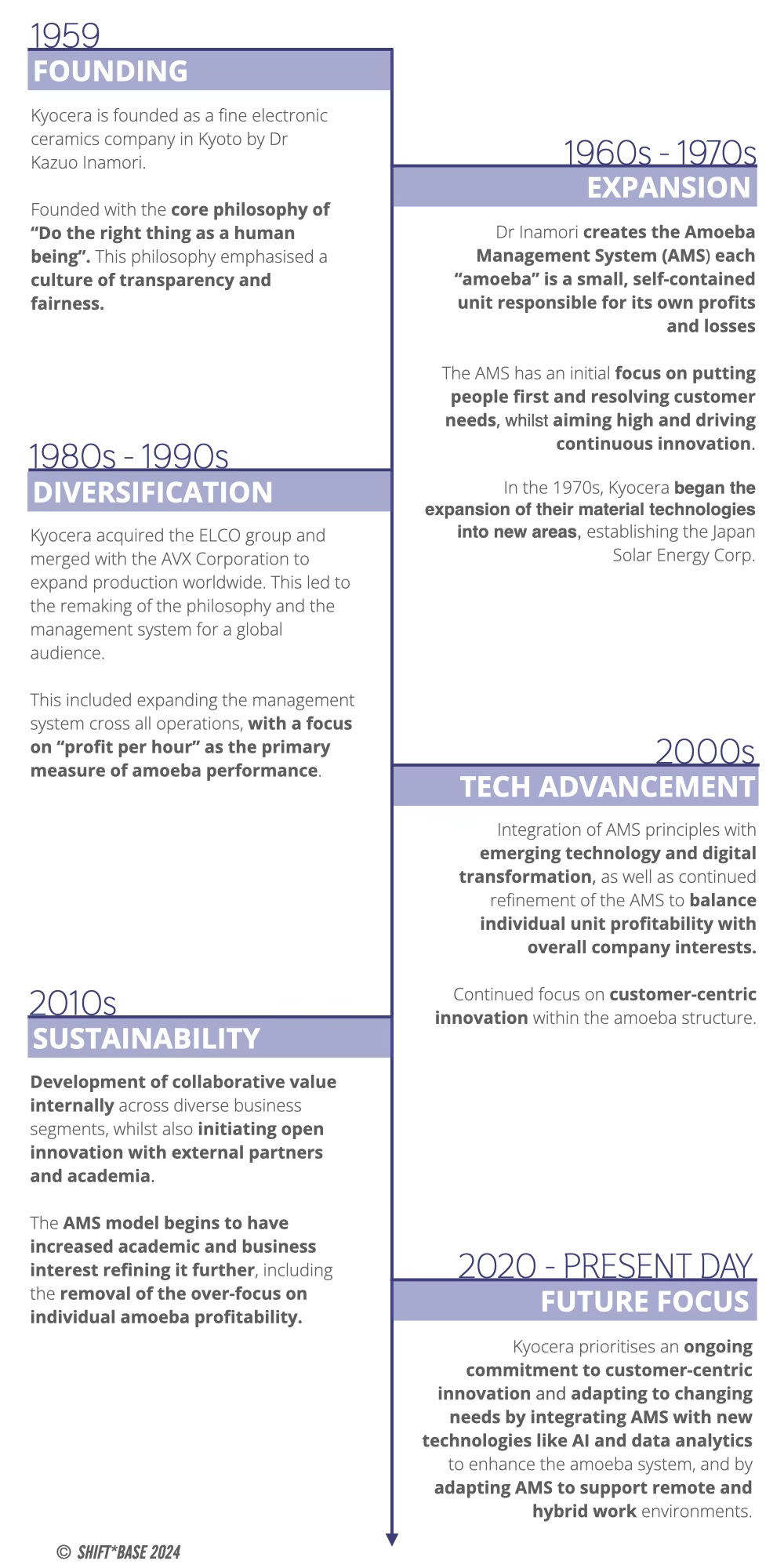Lessons from Kyocera in integrating tradition with digital transformation
How Kyocera uses structure, culture and capability development to stay ahead in a global, fast-paced market.
Balancing tradition with innovation presents a formidable challenge for organisations with a storied history and established reputation. Companies like Kyocera, with its deep-rooted Inamori Philosophy and unique Amoeba Management System, exemplify how integrating long-standing values with cutting-edge practices can drive transformative success. Similarly, firms such as IBM, Bosch and General Electric have adeptly blended their rich legacies with modern technological advancements, demonstrating that evolving while honouring tradition can lead to sustained excellence and growth.

Kyocera exemplifies the successful integration of human-centric values into a framework for sustained growth. At the heart of Kyocera's success is the Amoeba Management System, a decentralised approach that empowers small, autonomous teams to operate like independent businesses within the larger organisation. Dr Inamori summarised:
"A company is the sum of its employees' passion, capabilities, and efforts. The role of management is to create an environment where everyone can realise their full potential."
So, what can we learn from Kyocera’s journey with Amoeba Management and the Inamori philosophy? In this case study, we will delve into:
The core principles that underpin the Amoeba Management System (AMS).
The importance of capability development to support rapid team development in the AMS model.
How the focus on AMS development, alongside efficiency and effectiveness leads Kyocera to address emerging technology in a rigorous and consistent way.
What lessons does Kyocera's journey with Amoeba Management and the Inamori philosophy offer? Let’s explore.
Kyocera: An Overview
Kyocera, a multinational conglomerate renowned for its innovative technology and diversified product portfolio, has long been a leader in the fields of electronics, ceramics, and telecommunications. With a workforce of over 77,000 employees and a reported annual revenue of $15 billion in 2022, Kyocera's commitment to its unique corporate philosophy and management style has been instrumental in its sustained success. This case study delves into how Kyocera has effectively utilised its distinctive Amoeba Management System and the Inamori Philosophy to foster a culture of continuous improvement, entrepreneurship, and ethical business practices. Through these innovative techniques, Kyocera not only adapts to the challenges of a dynamic global market but also empowers its employees to drive meaningful change and deliver exceptional value to customers worldwide.




